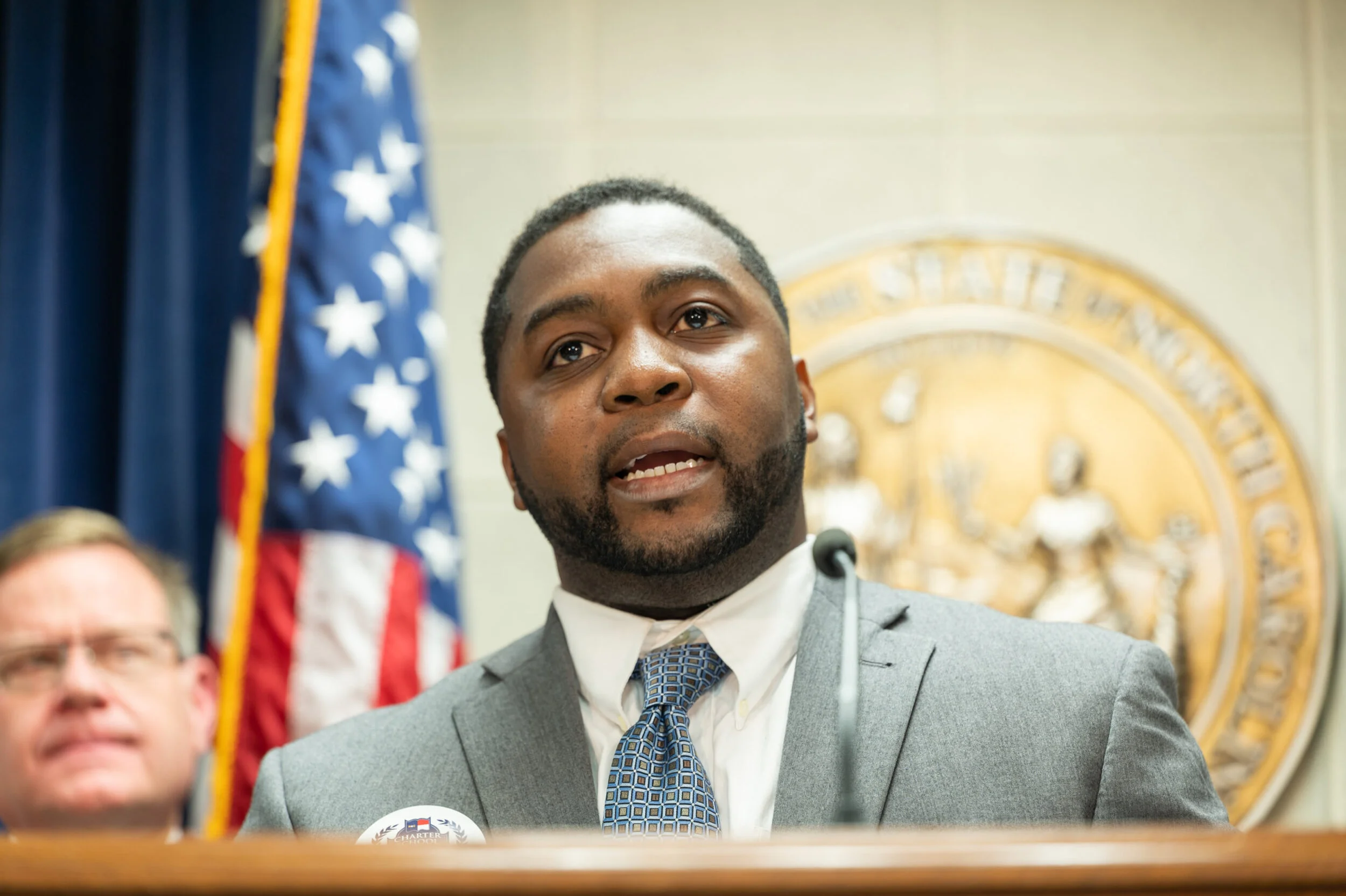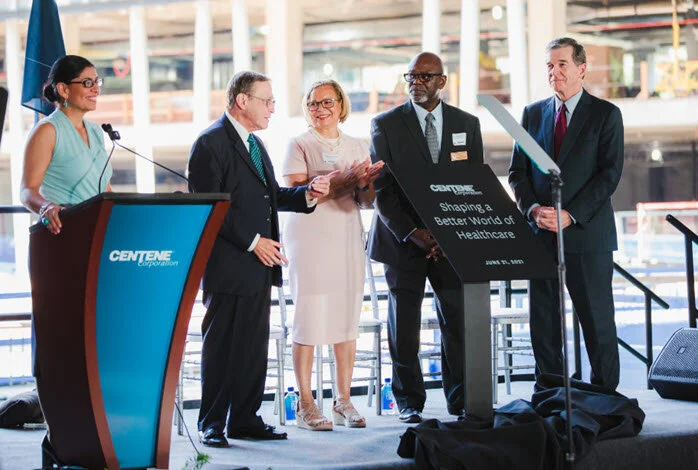Graduate of one of N.C.’s first charter schools comes full circle
By David Bass, Carolina Journal
Tim Taylor could scarcely have imagined when he began attending Arapahoe Charter School in 1997, that he would one day come full circle and send his own sons there decades later.
Taylor attended Arapahoe Charter — one of the first charters created under a new North Carolina new law — for middle school in the late 1990s. Today, he's a successful professional working in health care administration. He has lived all over North Carolina, and even outside the state, but he and his family decided to relocate back to Arapahoe because the town and school are exactly where he wants his kids to grow up.
“It’s a beautiful thing for me,” Taylor said. “I’m getting to live out the very thing all of our parents hoped for when they were fighting so hard to get this charter school established.”
The community came together
Arapahoe is a small fishing and farming town nestled in a remote part of eastern North Carolina, near where the Neuse River empties into the Pamlico Sound. After consolidation threatened to close the town’s 150-year-old public school in 1996, the local community took matters into its own hands.
Their efforts were buoyed by a law created by the N.C. General Assembly the year before that legalized the creation of charter schools. Arapahoe Charter was officially launched as a K-8 school in 1997, one of the first charters to open in the state under the new law.
“It was a summer that I’ll never forget in my life,” Taylor recalled. “The community came together, across religious lines, race, and politics. The grocery store owner worked together with the Sunday school teacher, the Sunday school teacher work with the local mechanic.”
As is frequently the case, finding suitable funding for facilities was a challenge for the nascent charter school. It initially operated in space provided by three local churches and a rented church camp. Later, volunteers cleared land along Highway 306 to erect pre-built, modular steel buildings.
Once the school was up and running, the local mechanic used his backyard to keep the schools’ fleet of buses. He also cleaned classrooms, playgrounds, and fixed a leaky faucet, Taylor recalled.
There were times where teachers went out sick and it wasn’t always easy to find a substitute. But the community once again came together called in the local Sunday school teacher to help out.
“Our community became the charter school board: It was all hands on deck,” Taylor said.
Everyone cares
The No. 1 aspect Taylor attributes as a life-changer was this: How much everybody at Arapahoe Charter cared.
“The small classroom sizes, it really creates a family atmosphere,” Taylor said. “It really helps to pull out those gifts that are in those children. There are many witnesses to that all across this country.”
A standout memory for Taylor was in the sixth grade when one of his teachers fell ill and a local woman substitute taught. Her house was just a few mailboxes down from Arapahoe Charter. The school’s field trip budget was limited, so she lined up the students and walked down to her house, which had plenty of land and a large garden.
“I remember her spending a lot of time with me teaching about her garden and the way things grow,” Taylor said. “Today, now I have a garden myself, and I work with my boys in our garden. Things like that are what you’ll find in a charter school.”
“This is why charter schools are so important. This is what leads to the waiting lists. It’s really an incredible thing,” he added.
Planting seeds
Taylor describes the members of the community who invested so much into the charter school as farmers, planting seeds of knowledge in the next generation.
“They planted seeds in us. Some of those seeds were dedication, hard work, not giving up, choice. If you work hard, you can have choices in life,” he said.
Back in 2012, Taylor was asked to speak at the graduation ceremony for Arapahoe Charter. He challenged the students with a single question: “How do you define freedom?”
“The answer to that is choice,” Taylor said.
Today, Arapahoe Charter is a K-12 school and serves nearly 600 students. Taylor’s two oldest boys are among them. He also plans to send his youngest son to Arapahoe when he’s of age.
Celebrating 25 years of charters in N.C.
On June 21, the Tar Heel State marked the 25th anniversary of legalized charter schools. What started as a small movement has blossomed: Today, more than 8% of public school students — around 126,000 in total — are enrolled in 200 charter schools in 65 counties across the state. Demand continues to outpace supply as more than 76,000 names are on the waitlist for charters.
Even as traditional public schools have experienced the sharpest enrollment declines in decades during the COVID-19 pandemic, charters have seen a 7% enrollment increase.
June also marked the 10-year anniversary of the action that allowed charter school growth to take off, with legislation lifting the 100-school cap. That bill was passed nearly unanimously by both chambers of the General Assembly and signed into law by then-Gov. Bev Perdue.



